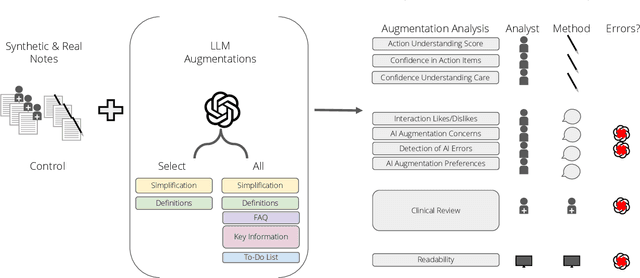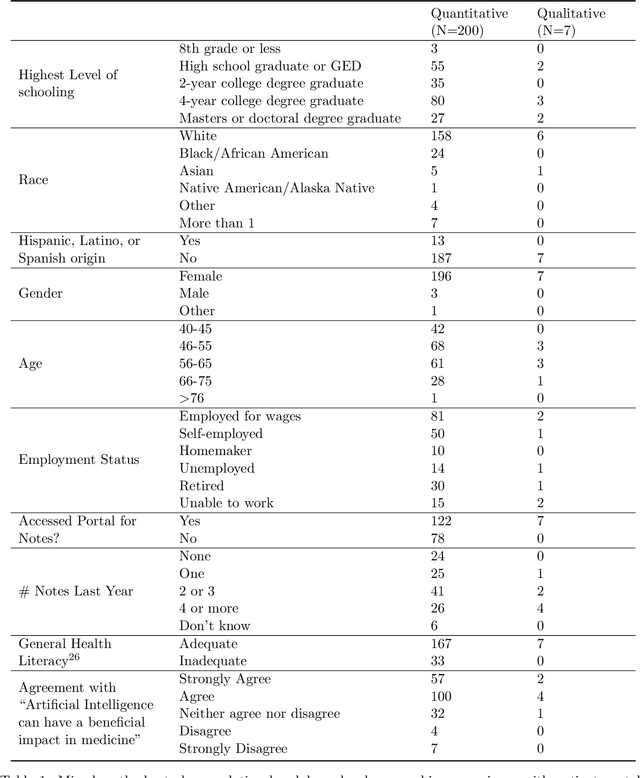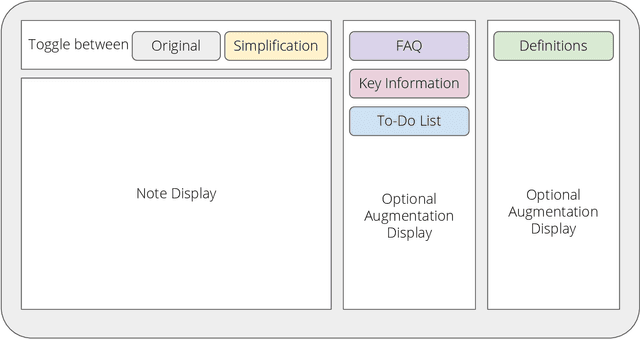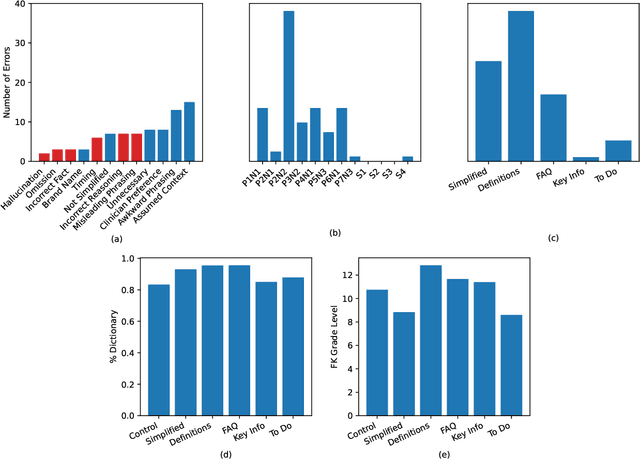Irbaz B. Riaz
MatchMiner-AI: An Open-Source Solution for Cancer Clinical Trial Matching
Dec 23, 2024



Abstract:Clinical trials drive improvements in cancer treatments and outcomes. However, most adults with cancer do not participate in trials, and trials often fail to enroll enough patients to answer their scientific questions. Artificial intelligence could accelerate matching of patients to appropriate clinical trials. Here, we describe the development and evaluation of the MatchMiner-AI pipeline for clinical trial searching and ranking. MatchMiner-AI focuses on matching patients to potential trials based on core criteria describing clinical "spaces," or disease contexts, targeted by a trial. It aims to accelerate the human work of identifying potential matches, not to fully automate trial screening. The pipeline includes modules for extraction of key information from a patient's longitudinal electronic health record; rapid ranking of candidate trial-patient matches based on embeddings in vector space; and classification of whether a candidate match represents a reasonable clinical consideration. Code and synthetic data are available at https://huggingface.co/ksg-dfci/MatchMiner-AI . Model weights based on synthetic data are available at https://huggingface.co/ksg-dfci/TrialSpace and https://huggingface.co/ksg-dfci/TrialChecker . A simple cancer clinical trial search engine to demonstrate pipeline components is available at https://huggingface.co/spaces/ksg-dfci/trial_search_alpha .
Impact of Large Language Model Assistance on Patients Reading Clinical Notes: A Mixed-Methods Study
Jan 17, 2024



Abstract:Patients derive numerous benefits from reading their clinical notes, including an increased sense of control over their health and improved understanding of their care plan. However, complex medical concepts and jargon within clinical notes hinder patient comprehension and may lead to anxiety. We developed a patient-facing tool to make clinical notes more readable, leveraging large language models (LLMs) to simplify, extract information from, and add context to notes. We prompt engineered GPT-4 to perform these augmentation tasks on real clinical notes donated by breast cancer survivors and synthetic notes generated by a clinician, a total of 12 notes with 3868 words. In June 2023, 200 female-identifying US-based participants were randomly assigned three clinical notes with varying levels of augmentations using our tool. Participants answered questions about each note, evaluating their understanding of follow-up actions and self-reported confidence. We found that augmentations were associated with a significant increase in action understanding score (0.63 $\pm$ 0.04 for select augmentations, compared to 0.54 $\pm$ 0.02 for the control) with p=0.002. In-depth interviews of self-identifying breast cancer patients (N=7) were also conducted via video conferencing. Augmentations, especially definitions, elicited positive responses among the seven participants, with some concerns about relying on LLMs. Augmentations were evaluated for errors by clinicians, and we found misleading errors occur, with errors more common in real donated notes than synthetic notes, illustrating the importance of carefully written clinical notes. Augmentations improve some but not all readability metrics. This work demonstrates the potential of LLMs to improve patients' experience with clinical notes at a lower burden to clinicians. However, having a human in the loop is important to correct potential model errors.
 Add to Chrome
Add to Chrome Add to Firefox
Add to Firefox Add to Edge
Add to Edge